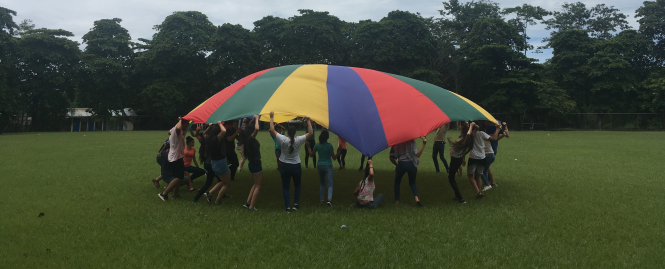Selal's History & Evolution

SELAL was created as a collaboration between Stanford University and Costa Rica’s public and private sectors. Stanford staff worked with community members, the Colegio Técnico Profesional Puerto Jiménez, local ecolodge businesses, and other INOGO partners to design and hold its first SELAL program in January 2015 in Puerto Jiménez. SELAL continues to work with these partners in Puerto Jiménez. In July 2017, with the request of community leaders, SELAL expanded to Bahía Ballena/Uvita, where it works with the Liceo La Uvita and local organizations and businesses in that area. Since SELAL began over 200 students have graduated from the program.
SELAL draws on the strengths of Puerto Jiménez and Bahía Ballena/Uvita to meet community needs. Since 2011, INOGO has been conducting research with communities in the Osa and Golfito region. After having listened to the needs and requests of community members, there was a clear need for additional training of youth in leadership and English language skills to obtain jobs in the local ecotourism industry, the economic motor of the region. Parents shared that youth were leaving the area to seek training and employment opportunities elsewhere. SELAL was designed to address those needs and also connect students to the resources in their own communities to work to improve : leadership skills, English language skills, willingness to step outside “comfort zones” with respect to new personal and professional opportunities, and establish stronger connections amongst other community members and communities themselves (Hunt et al., 2015).
It has been the intent of INOGO to have our local collaborators in Costa Rica take over the management and implementation of its programs. For SELAL, this has meant the gradual reduction in Stanford staff affiliated with SELAL and the hiring of local coordinators and assistants to run the program. We have also invited former SELAL participants to act as student leaders for the program to provide presentations, lead fun activities, and assist with logistics, some of the responsibilities formerly held by Stanford student interns. The student leaders are able to continue strengthening their personal and professional development skills in these roles.

Ballena district founded the organization. SOMOS acts as a hub to connect programs and projects to create sustained social impact in the region. It draws on the philanthropy of travelers to help fund these programs. SOMOS will manage the program while Stanford will remain in a support capacity. For more information about SELAL please visit: https://www.somos.cr/